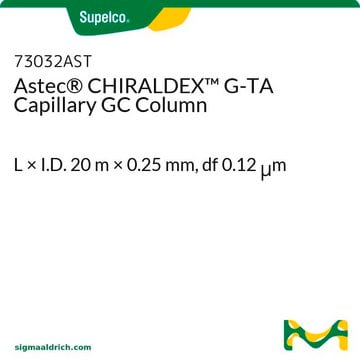A70704
(1R,2R)-(−)-2-Amino-1-(4-nitrophenyl)-1,3-propanediol
99%
Synonym(s):
D-(−)-threo-2-Amino-1-(p-nitrophenyl)-1,3-propanediol, Chloramphenicol base
Sign Into View Organizational & Contract Pricing
All Photos(2)
About This Item
Linear Formula:
HOCH2CH(NH2)CH(C6H4NO2)OH
CAS Number:
Molecular Weight:
212.20
EC Number:
MDL number:
UNSPSC Code:
12352116
PubChem Substance ID:
NACRES:
NA.22
Recommended Products
Quality Level
Assay
99%
form
powder
optical activity
[α]25/D −30°, c = 1 in 6 M HCl
mp
163-165 °C (lit.)
SMILES string
N[C@H](CO)[C@H](O)c1ccc(cc1)[N+]([O-])=O
InChI
1S/C9H12N2O4/c10-8(5-12)9(13)6-1-3-7(4-2-6)11(14)15/h1-4,8-9,12-13H,5,10H2/t8-,9-/m1/s1
InChI key
OCYJXSUPZMNXEN-RKDXNWHRSA-N
Related Categories
Application
(1R,2R)-(-)-2-Amino-1-(4-nitrophenyl)-1,3-propanediol may be used in the preparation of (1R,2R)-(-)-2-dimethylamino-1-(4-nitrophenyl)-1,3-propanediol via N,N-dimethylation. It may also be used as a starting material to synthesize (1R,2R)-1,3-diacetoxy-1-(4-nitrophenyl)-2-propylisothioeyanate [(R,R)-DANI].
Signal Word
Warning
Hazard Statements
Precautionary Statements
Hazard Classifications
Acute Tox. 4 Oral - Eye Irrit. 2 - Skin Irrit. 2 - STOT SE 3
Target Organs
Respiratory system
Storage Class Code
8A - Combustible corrosive hazardous materials
WGK
WGK 3
Personal Protective Equipment
dust mask type N95 (US), Eyeshields, Gloves
Choose from one of the most recent versions:
Already Own This Product?
Find documentation for the products that you have recently purchased in the Document Library.
Customers Also Viewed
(1R, 2R)-(-)-2-Dimethylamino-1-(4-nitrophenyl)-1, 3-propanediol/l-proline cocatalyzed enantioselective Morita-Baylis-Hillman reaction.
Tang H, et al.
Catalysis Communications, 8(11), 1811-1814 (2007)
Development of new isothiocyanate-based chiral derivatizing agent for amino acids.
Peter M, et al.
Chromatographia, 50(5-6), 373-375 (1999)
D K Zheng et al.
Yao xue xue bao = Acta pharmaceutica Sinica, 25(6), 430-434 (1990-01-01)
Threo (-) or (+)-1-(p-nitrophenyl)-1,3-dihydroxypropylamine-2 was found to be a useful resolving agent for racemic gossypol. The optical and chemical stability of the condensate of enantiomeric gossypols with the titled amine and the great difference in the Rf values on TLC
D A Pearce et al.
Molecular genetics and metabolism, 66(4), 314-319 (1999-04-07)
The CLN3 gene, which encodes the protein whose absence is responsible for Batten disease, the most common inherited neurovisceral storage disease of childhood, was identified in 1995. The function of the protein, Cln3p, still remains elusive. We previously cloned the
Induced synthesis of phosphatases in Anacystis nidulans by p-NO2-phenylserinal.
M L Muñoz-Calvo et al.
The Journal of antibiotics, 33(5), 520-522 (1980-05-01)
Our team of scientists has experience in all areas of research including Life Science, Material Science, Chemical Synthesis, Chromatography, Analytical and many others.
Contact Technical Service










